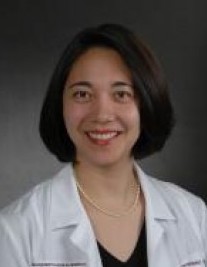2010 UALC

Lecia Sequist, MD, MPH
Massachusetts General Hospital
Research Project:
Repeat Biopsies in Lung Cancer to Define Targeted Therapy Resistance Mechanisms
Summary:
Molecularly-targeted therapies have proven very effective, for example in patients with EGFR-activating mutations. However, these patients still develop resistance to these personalized therapies. Dr. Sequist and her team are seeking to further characterize resistance to therapy by monitoring patients in real-time, with serial tumor biopsies. This approach will not only direct patients to the most appropriate treatments, but also yield important insight into acquired drug resistance. The study also combines validation of a ‘real world’, non-invasive method to study resistance, by capturing circulating tumor cells in the blood.
More Content:
Final Report
Dr. Sequist has published her initial data describing how the molecular mechanisms of lung cancer can change during treatment, and now has over 110 patients participating in the study. She observed tumors losing resistance-conferring mutations, as well as observing some patients who initially presented with non-small cell lung cancer later develop small cell lung cancer. These observations cast new light on our understanding of how lung cancer begins and progresses, and provides rationale for cycling through different targeted treatments. Dr. Sequist was awarded funding from the NCI to continue this research, enabling her second year of funding from UALC to be used to investigate SCLC transformation as a mechanism of resistance. Surprisingly, this was the second most common type of resistance behind the classic EGFR resistance mutation T790M. All of these tumors were confirmed to harbor the original EGFR activating mutation, but little else was known about this type of resistance. Dr. Sequist and her colleagues have discovered a number of genetic changes in these transformed tumors and are preparing a manuscript for publication. She has also investigated whether this also occurs in patients with other genetic drivers, but did not observe any NSCLC to SCLC transitions in ALK-positive patients resistant to treatment.
Notable Accomplishments
Dr. Sequist has published two manuscripts in Science Translational Medicine, and has received over $190,000 in follow-on funding from the National Cancer Institute.
